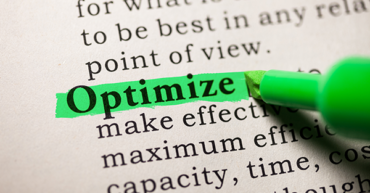March 19, 2025
Mindfulness for Beginners — and we are all beginners

By Valerie Driscoll, Lead Coach and Coaching Program Developer for Apollo Health
“Of course, as with any instrument- whether it is a radio telescope, a spectrophotometer, or a bathroom scale- you first have to calibrate it and stabilize the platform on which it sits so that you can get reliable readings.” — Jon Kabat-Zinn, Mindfulness for Beginners: Reclaiming the Present Moment and Your Life.
Mindfulness for Beginners is my favorite book recommendation for anyone wishing to begin or deepen their mindfulness practice. There is nothing that compares with it for user-friendliness and its wisdom-to-word ratio, which is off the charts. At a tidy 153 pages, comprised of short chapters that are both easily digestible while simultaneously containing material on which you could ruminate for a lifetime, it is the perfect choice for anyone who would like to spend 10 minutes a day becoming a little wiser and a lifetime of creating more ease.
Jon Kabat-Zinn, the GOAT of Western mindfulness and whom you can learn about by either doing “the Google” or “the YouTube,” helps the reader to begin to calibrate and stabilize the mind, which can so easily become unreliable and inaccurate in its readings due to a variety of factors, which JKZ discusses in the book succinctly, yet meaningfully. By creating more accurate readings through mindfulness practice, we reap the true benefits of this work: seeing the inner workings of one’s mind more clearly (which I would occasionally prefer not to know) and then reacting more wisely to the world through this clearer vision. Imagine having this as a default mode! Throughout all of his instruction, Kabat-Zinn bathes the learner in kindness and the notion that we already have all of this wisdom within us but that life has a way of stirring up our inner calm waters and obscuring our vision.
No matter what the factory settings with which one comes to mindfulness, it is the work of a lifetime; the beauty of the practice, however, is that you will also see results from your efforts rather quickly. Mindfulness requires no special equipment, as you will soon realize that the world is your training room. As someone who has taught JKZ’s evidence-based program, Mindfulness-Based Stress Reduction (MBSR), one of the most satisfying parts of experiencing the 8-week program with students is seeing the moment someone “gets it” and recognizes that the mind can often be a lot murkier than we believe it to be, and that the way it has always been is not the way it always has to be. From a scientific perspective, research shows that the brain’s structure can change toward more balance and calm in as little as eight weeks of training.
Mindfulness for Beginners is my touchstone, and when I am ready to see another layer of my mind more clearly: i.e. when I screw it up, it never fails to bring me gently back to my work. During these times, the book will open itself to a place of relevance, but perhaps this is because there is no place in the book that isn’t relevant! My original copy, with hundreds of tiny Post-it notes hanging off its pages, was accidentally left at the airport. When I replaced it, I realized the silliness of many-hued notes, as every sentence was tag-worthy.
For those who want to listen to guided meditations, the book has an old-school CD. As most of us here are of a certain age, you will likely have a CD player hanging around somewhere if you want to listen to JKZ’s soothing voice guiding a meditation. It also contains many additional reading suggestions and resources to deepen your practice.
Have I convinced you yet? If so, find a copy of your own to treasure and begin or middle your own mindful adventure.




